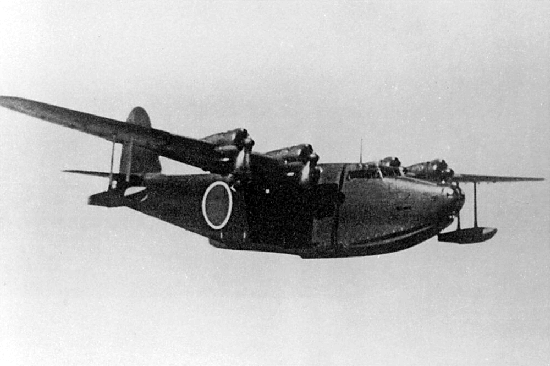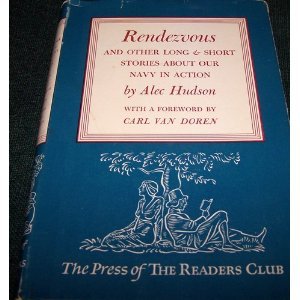Rendezvous

“I have often said that an intelligence officer has one task, one job, one mission. This is to tell his commander, his superior, today, what the [enemies] are going to do tomorrow. This is his job. If he doesn’t do this, then he’s failed.”
– Captain Joseph J. Rochefort, USN
I was having one of Willow’s specials off the Lunch Counter menu- the turkey matzo ball stew- and talking to Brian about growing up in Honolulu. He brought a couple ancient yellowed articles with him, papers his Dad The Chief had saved to recall the events of people he knew during the war.
One of them was about the second attack on Pearl Harbor, the one that was a military secret at the time, and was largely lost to history for years. I understand the reasons at the time. No point in getting everyone worked up again, and from a military perspective, once they figured it out, the staging base for the seaplanes at French Frigate Shoals was patrolled and denied to the Japanese. That also might have contributed to the lack of long-range patrol aircraft to look for the American fleet before the battle of Midway.
I dealt with all sorts of secrets in my Navy years- some large and some small. Some came with a fifty-year seal on them, and my pal The Good Doctor put his history of the program in the safe with a sigh, knowing no one would ever see the stories contained within.
There are still some things about Pearl Harbor that are under seal- and one can only wonder what will pop out when the 75-year window of secrecy expires in 2020.
We looked at the yellowing article in the Honolulu Advertiser. I remember the first time I heard of the second attack like it was yesterday.
Mac was 91 that year. He drove over to the Willow in the champagne-colored jaguar sedan from his residence at the Madison across the street and got his million-dollar parking space out front. I looked over at him in his aloha shirt. “So tell me how it all went down, Sir, just for the record. You have told the story a thousand times, but I want to bounce it off what Jasper and Eddie wrote about it later, and the oral history Joe Rochefort did in 1969. You are the only one who can put it all in context now.”
I was feeling expansive, pleasantly lit up with Willow’s current vintage of an insouciantly dry Spanish white that Big Jim the bartender would top off periodically. I felt that we had beaten the year of 1942 about to death. We had talked about Midway, and the growing intelligence organization, and the treachery of Wenger and the Redmans, and I was eager to get on to the Spring of 1943, since I was getting desperate to kill Admiral Yamamoto again.
“You know I went down to Honolulu on Christmas Day of 1942 and went through the barbed wire for a swim from the beach,” said Mac absently. “Then I wrote to the folks back in Iowa and told them about it. They would have been freezing then.”
American kids were dying in the jungles of the Solomon Islands. Hundreds of other kids had been blown to bits or drowned in The Slot in the see-saw battle for Guadalcanal as the Japanese ran the Tokyo Express in at night to bring reinforcements to the islands, and the Americans flew from Henderson Field by day. Back in Pearl, and Melbourne, Australia, the code-breakers labored eighteen and twenty hours a day to recover the values of the new five-group system imposed by the IJN.
The Admiral took a sip of his Virgin Mary and waved a colossal olive on the end of a toothpick at me. “They don’t talk about the second attack much, do they?”
I sighed. This interview was not going the way I had hoped. “What second attack? I know the Japs had used balloons to send incendiary devices to the Pacific Northwest to start forest fires, and they had submarine-carried seaplanes to attack the Panama Canal, but that didn’t happen.”
“Well, the second attack on Pearl Harbor did. It was on the 4th of March, 1942. Eddie Layton did some research after the war and discovered what had gone down, and it might have been Jasper’s fault.”
“What on earth do you mean,” I asked. “How could Jasper have helped the Japanese?”
“Well,” said Mac. “You know that Jasper was a pretty successful author. He wrote under the pen-name Alec Hudson.”
“Yeah, I know. I ordered a copy of “Up Periscope” the other day, and just started it. He writes well.”
“I have that one and his “Doubled-edged Secrets, both autographed,” said Mac. He smiled and reached down to his briefcase and produced a book with a black cover, the title superimposed in lines of gray. “This is the one I gave to my mother, and I got it back after she passed.” He opened it and showed me the inscription:
“To Hattie Showers
Whose son had a very
important part in these
events. With the compliments
of the author
W. J. Holmes”
“So what about the second attack,” I said after looking at the words. “I have never heard about that and I lived and worked in Pearl and thought I knew everything about it.”
Mac smiled. “It was two months after I arrived in the basement of Building One. Joe Rochefort was anxious about the possibility that the Japs might come back, and he was right. There was an article about it in Proceedings a few years ago, based on some research that Eddie Layton did in the 1950s, and a series of interviews that Joe Rochefort did in 1969. It was embarrassing, and that might be the reason people don’t talk about it much.”
“What happened?” I said, mystified.

(Kawanishi H8K “Emily” class flying boat takes off. US Navy Photo)
“The Japanese decided to mount a follow-on attack against the shipyard at Pearl to destroy the big Ten-Ten Dry-dock. That would delay the repairs to the battleships, and increase the paranoia on the island. They envisioned an attack by five big Kawanishi H8K “Emily” class flying boats.
“Jesus,” I said. “And they pulled it off? Why isn’t that part of the big history?”
“Well, that is the interesting part. Eddie located the Japanese OpOrders and the pilot reports of the mission after the war. As it turned out, only two seaplanes departed the Marshalls, and they did refuel from a submarine milk cow in the vicinity of French Frigate Shoals. They then launched for Oahu, to bomb and conduct what Joe Rochefort described as an ‘armed reconnaissance’ mission.”
“And there was no response, only four months after the biggest disaster in American military history? No warning?”
“Oh, there was warning all right. We had penetrated JN-25 enough at that point to know that something was up, but there was heavy overcast the night of the 4th of March and the Japanese got lost. The two Japanese planes wandered around over the island but the blackout was effective, and one of the planes dropped bombs on Tantulus, which produced a couple large craters and broke some windows at Roosevelt High School. Eddie thought the other plane must have dropped its bombs over the ocean.”
“That was it?” I asked. My wineglass stood empty next to the notepad. My pen was making exclamation points next to the words “Second Attack on Pearl: no response!!!!!”
“The submarine I-23, the weather reporting unit, disappeared while on patrol and never arrived on station. So the weather was bad, the planes never found Pearl Harbor, and there were two explosions in the night that the next day the Navy and the Army blamed on each other for dumping ordnance irresponsibly.”
“Good God, that would have been hugely embarrassing if word got out that the Japanese came back and were not intercepted.”
“Joe Rochefort said it this way,” Mac said, pulling a folded article out of the back of his copy of Double Edged Secrets. He unfolded it and peered over his glasses. “He had passed a warning to the 14th Naval District, the Hawaiian Sea Frontier Commander, and to CinCPac. This is from the interview he did with Commander Ette-Belle Kitchen in 1969.”
He began to read in a voice just loud enough to be heard over the din in the Willow bar:
“I was told later by informed people that the attack was made, as I say, more or less unmolested, because the Navy had no airplanes at that time capable of repelling this attack or destroying the incoming aircraft. The Army said that they only had one-place fighters, and who could expect a fighter pilot to not only fly the plane in darkness but also to approach and make an attack on any enemy plane. Therefore, nothing had been done about it, and no action was taken.”
“My God.” Mac smiled at me and handed the paper over. I looked at the rest of what Joe Rochefort felt then:
“I just threw up my hands and said it might be a good idea to remind everybody concerned that this nation was at war….It’s not a very glorious incident. You won’t find very many references to this anywhere along the line.”
I re-folded the article and slipped it back in the book.
“That certainly beats me,” I said. “So that was the end of it?”
“No,” said Mac. “They planned on trying it again before Midway, but Admiral Nimitz dispatched a couple seaplane tenders to French Frigate Shoals, and the Japanese wouldn’t risk it. That meant they lost a chance to see what we were doing before the Midway battle in June.”
“Amazing,” I said. “That is just one of the reasons I enjoy talking to you so much.”

“There was a sort of gallows humor about it on the CinCPac staff,” said Mac. “You will see that one of Jasper’s stories in “Up Periscope” is called “Rendezvous.” It was originally in the Saturday Evening Post just before the war. It outlines a plan by which submarines would refuel long-distance seaplanes for a sneak attack. There was quite a laugh about it on the staff, at least those that were cleared. Eddie Layton suggested that Jasper had planned the attack for the Japs, but it was not completely in jest. There was an investigation, and Jasper was exonerated.”
“That must have been sort of strange between pals,” I said.
“They weren’t,” said Mac. “Joe Rochefort and Eddie were very close. But Eddie couldn’t stand Jasper. I was one of his kids in the Estimates Section, and he was delighted when he finally got enough of us Lieutenants to stand up a real 24 hour watch. And he made Commander.”
“I imagine that would pick up anyone’s spirits,” I said. “it certainly did for me.”
“After I volunteered to go forward to Guam in ‘45, Jasper came out to make a visit. I told Eddie I was going to go out to the airfield and pick him up in my jeep. Eddie wanted to know why I was going to bother.”
I shook my head in wonder at the memory of a rendezvous so long ago and far away, vivid as if it were just yesterday.
Copyright 2015 Vic Socotra
www.vicsocotra.com
Twitter: @jayare303
